Steel Glossary
Daido DRM3
| C | Si | Mn | Cr | Mo | W | V | |
|---|---|---|---|---|---|---|---|
| Typical Composition (Weight %) | 0.8 | 0.7 | 0.3 | 5.4 | 4.5 | 1.0 | 1.2 |
| Treatment Temperatures | Hardness | ||||
|---|---|---|---|---|---|
| Hot Forming | Annealing | Hardening | Tempering | Soft Annealing | Hardened |
| (please inquire) | 800 - 880°C Slow cooling (≤ 20°C/min) |
1,100 - 1,140°C Quenching in oil, gas, or salt bath |
550 - 620°C Minimum 2x tempering, air-cooling |
≤ 235 HB | 62 - 66 HRC |
| Physical Properties | ||||||||
|---|---|---|---|---|---|---|---|---|
| Coefficient of thermal expansion [10-6/K] | 20 - 100°C | 20 - 200°C | 20 - 300°C | 20 - 400°C | 20 - 500°C | 20 - 600°C | ||
| 11.1 | 11.5 | 11.9 | 12.2 | 12.4 | 12.7 | |||
| Thermal Conductivity [W/mK] | 25°C | 200°C | 300°C | 400°C | 500°C | 600°C | ||
| 18 | 21.5 | 23.1 | 24.4 | 25.2 | 26.0 | |||
| Specific Heat [J/kgK] | 25°C | 200°C | 300°C | 400°C | 500°C | 600°C | ||
| 424 | 480 | 520 | 560 | 698 | 830 | |||
E-Modul = 210 GPa, The Sample Was Hardened At 1,140°C And Tempered Twice At 560°C
Microstructure
DRM3
(In The Center Of The Bar, Diameter 100 mm)
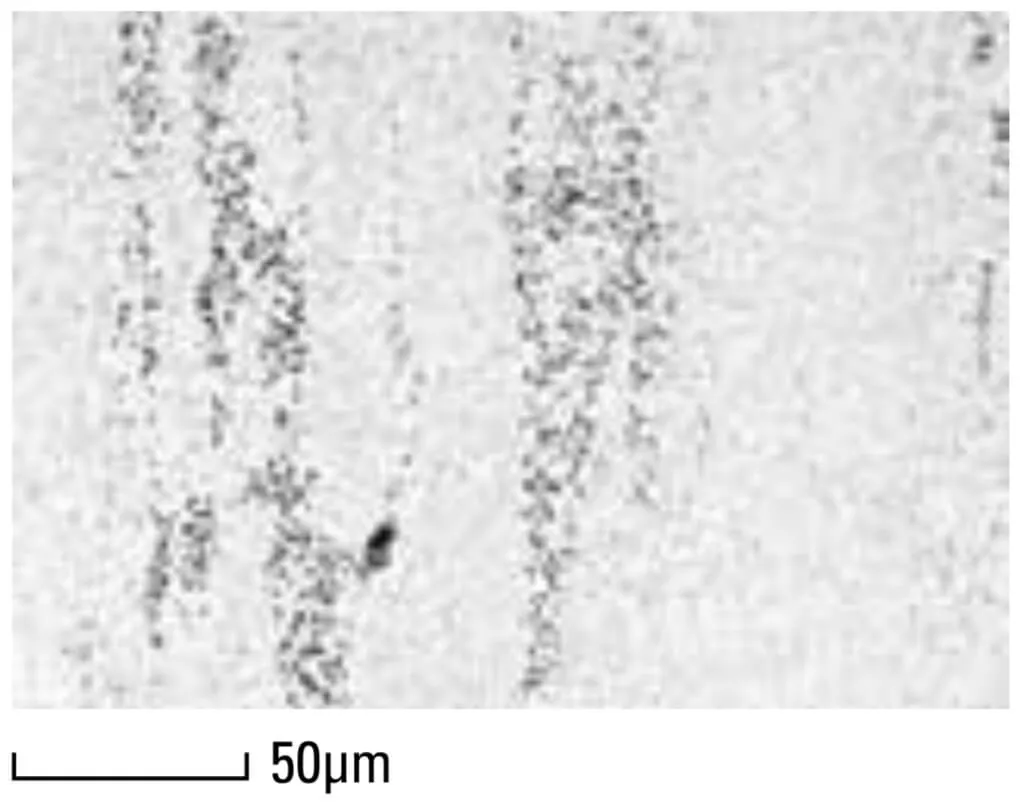
Conventional Hot Work Steel
(Daido)
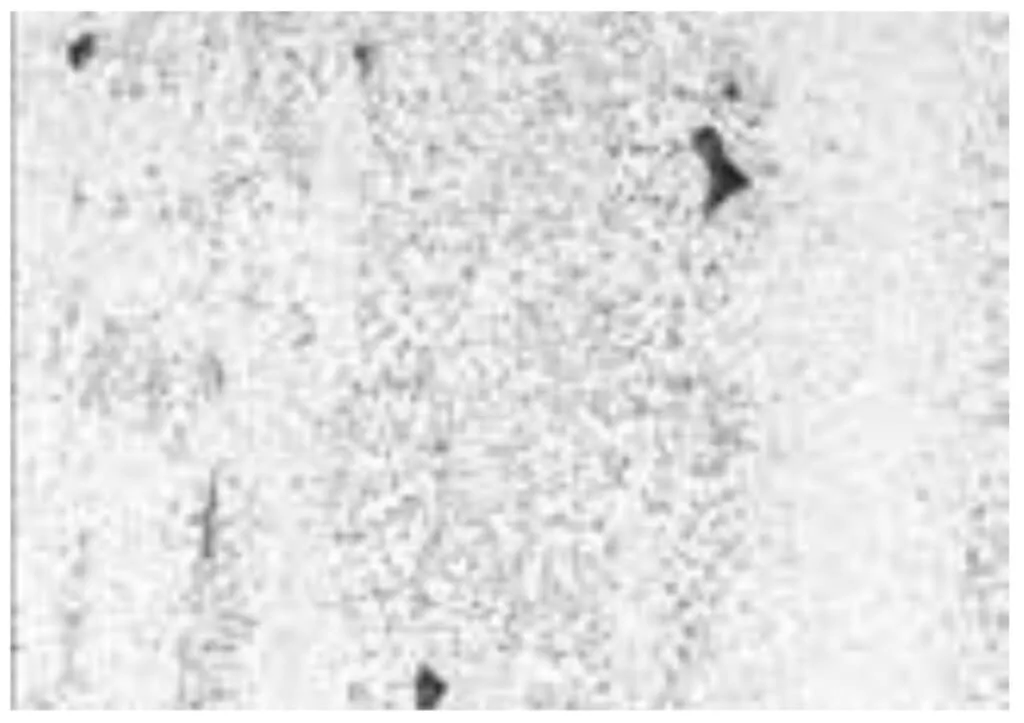
Tempering Treatment
Sample: Square 15 mm, quenched in oil, tempered with air cooling
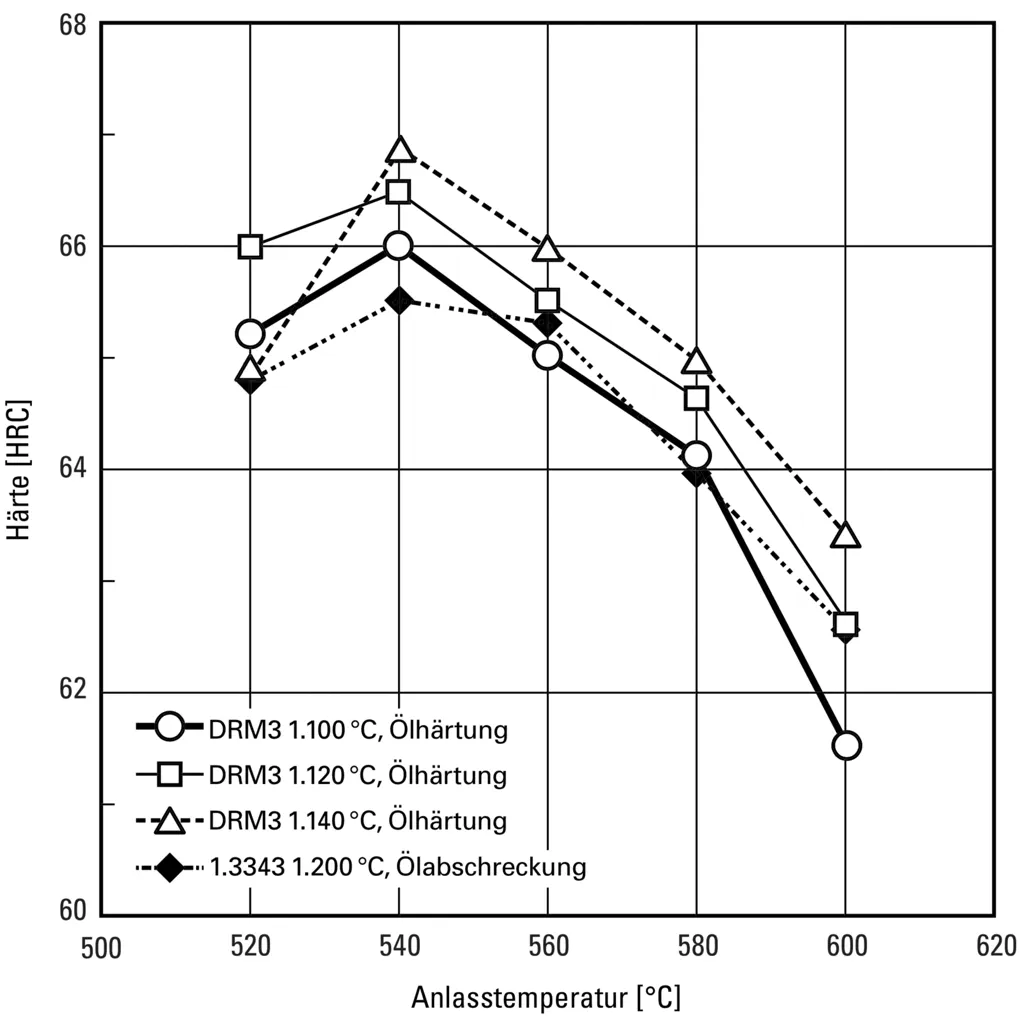
Charpy Impact Toughness
Samples: taken from round bar, in the center of the diameter 100 mm, notched U-shaped specimen
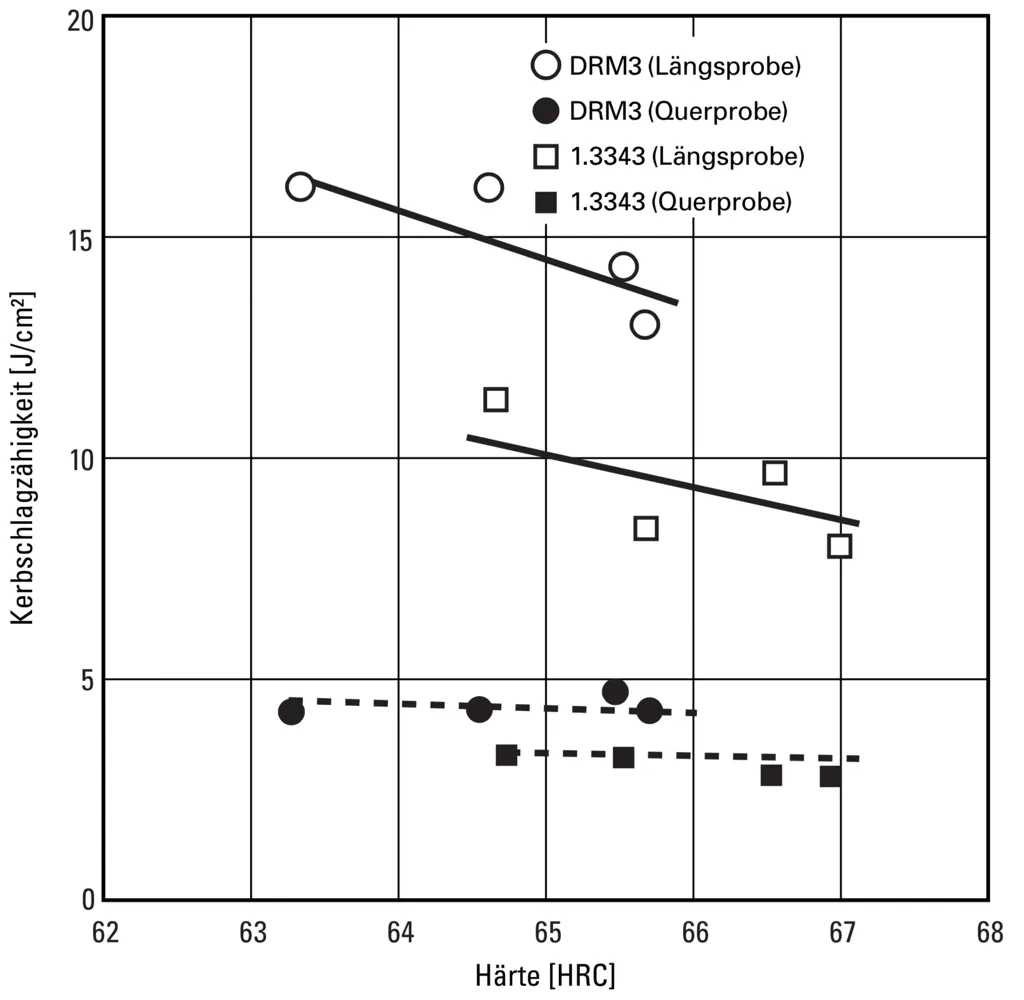
| Heat Treatment | ||
|---|---|---|
| Hardening | Tempering | |
| DRM3 | 1,140°C, oil quenching | 540 - 600°C, double tempering |
| 1.3343 | 1,210°C, oil quenching | 540 - 600°C, double tempering |
Hardness at Elevated Temperatures
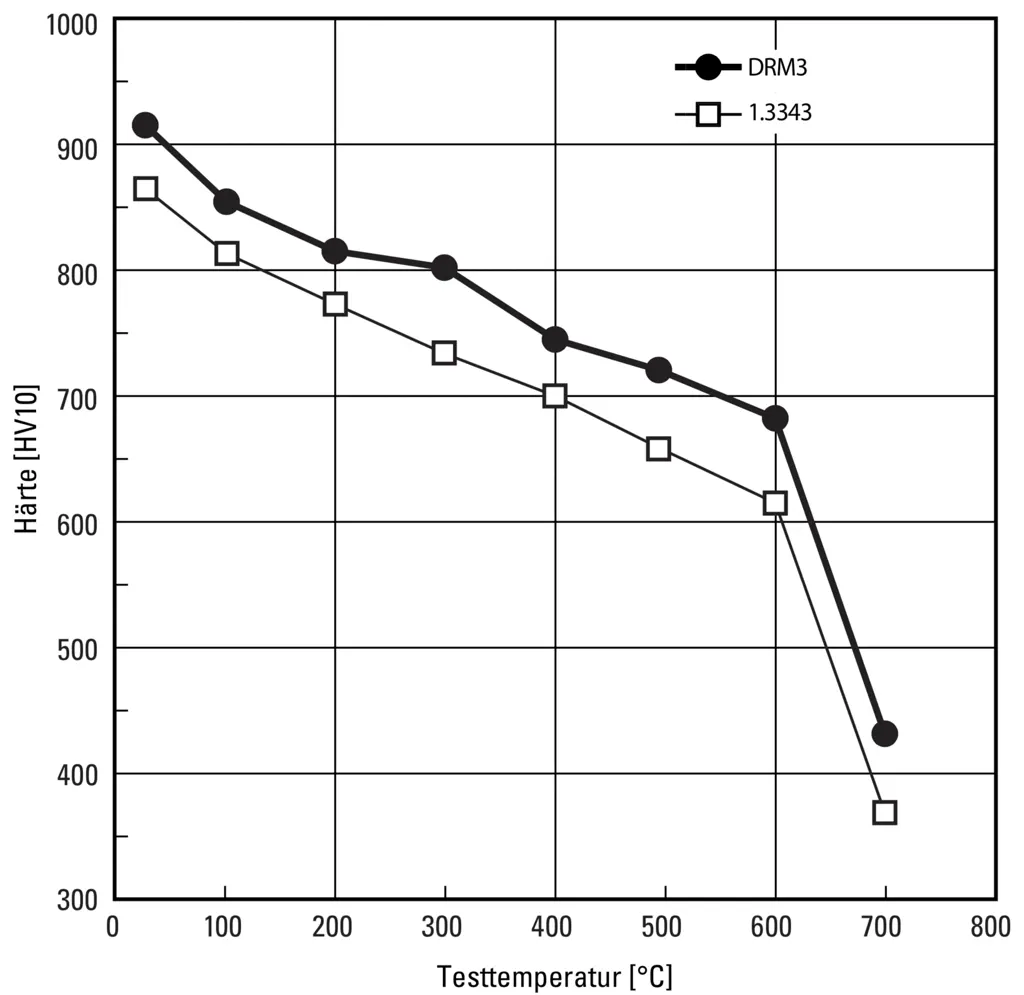
| Heat Treatment | ||
|---|---|---|
| Hardening | Tempering | |
| DRM3 | 1,140°C, oil quenching | 560°C, double tempering |
| 1.3343 | 1,200°C, oil quenching | 580°C, double tempering |
Crack Resistance To Burning
Sample: ∅ 15 mm, 10 mm thick
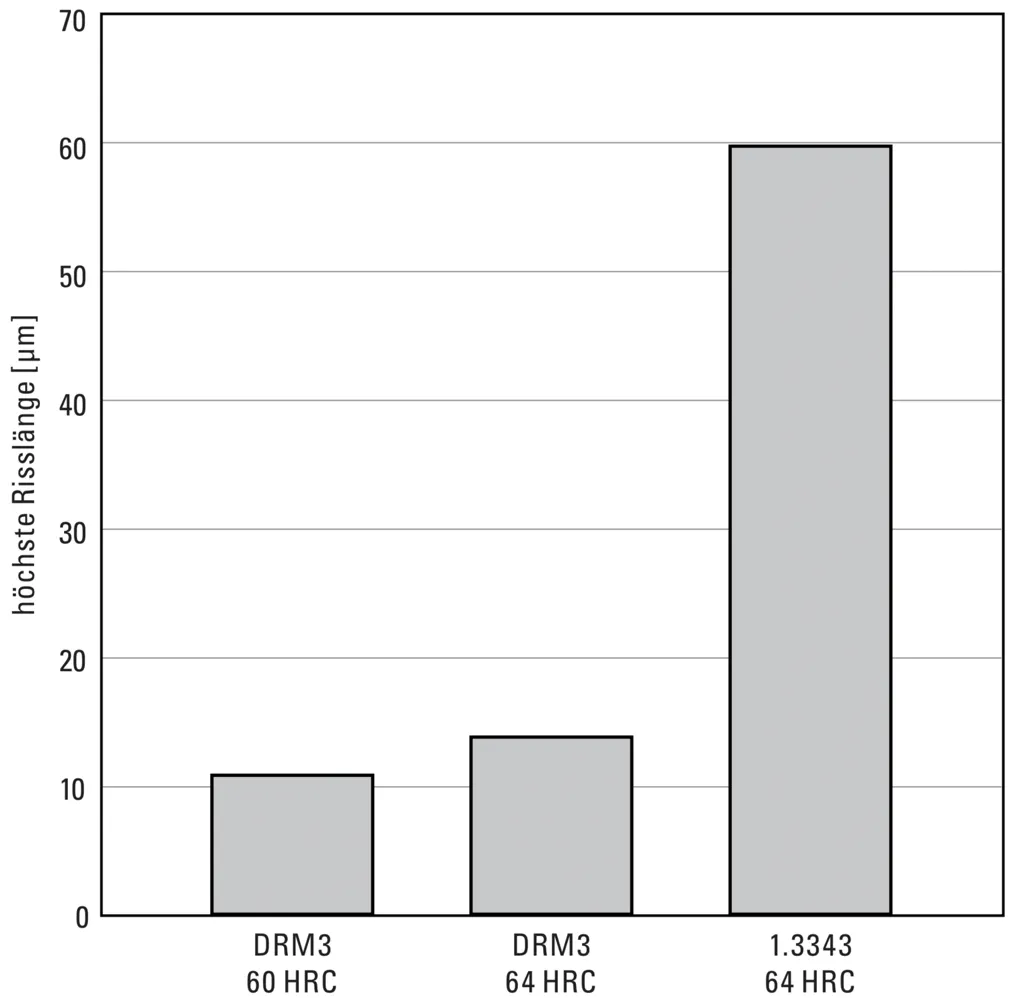
| Heat Treatment | ||
|---|---|---|
| Hardening | Tempering | |
| DRM3 | 1,120°C, oil quenching | 560 - 620°C, double tempering |
| 1.3343 | 1,200°C, oil quenching | 560°C, double tempering |
| Test method | Inductive heating 1,000 times to 600°C and cooling to 20°C | |
Fatigue Strength / Material Fatigue
Specimens: taken from the center of a rod with ∅ 100 mm
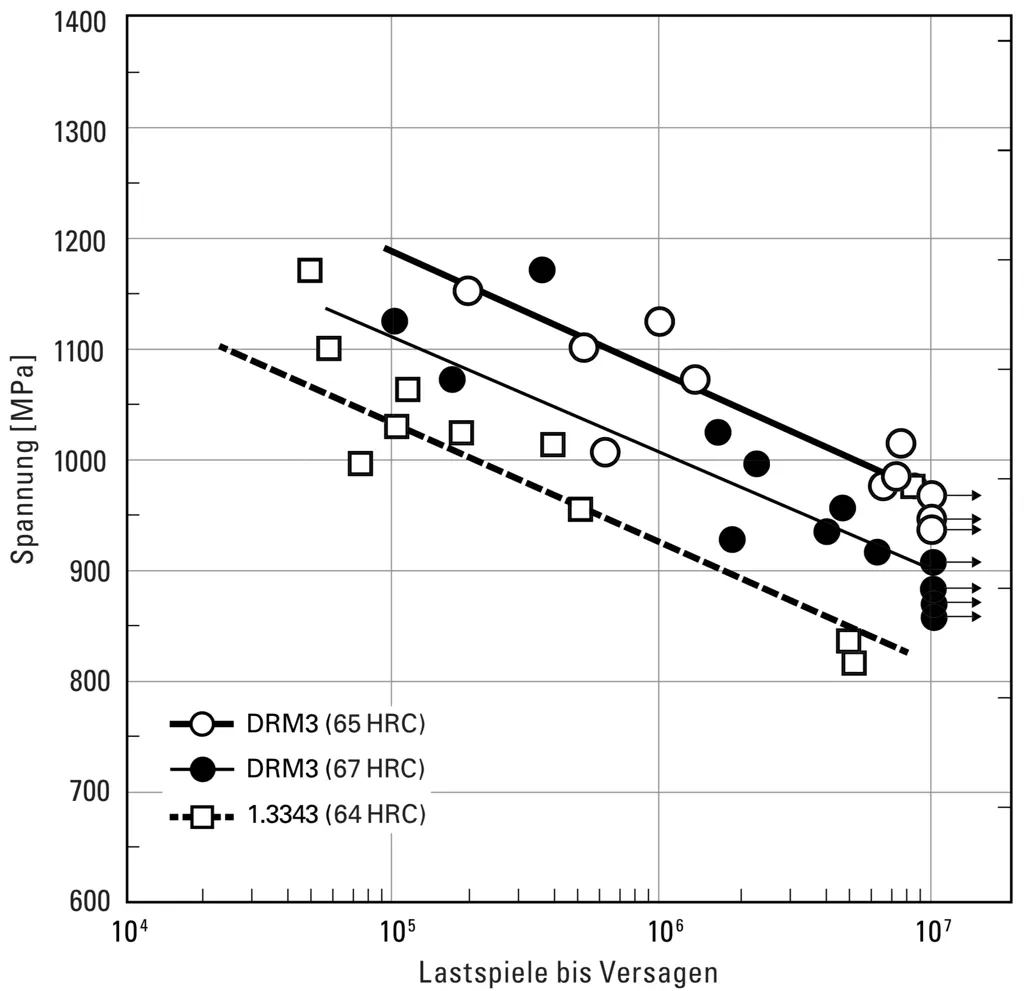
Fatigue Strength / Material Fatigue
Test Specimens: taken from the center of a rod with diameter ∅ 100 mm
| Heat Treatment | ||
|---|---|---|
| Hardening | Tempering | |
| DRM3 (65 HRC) | 1,100°C, oil quenching | 560°C, double tempering |
| DRM3 (67 HRC) | 1,140°C, oil quenching | 550°C, double tempering |
| 1.3343 | 1,140°C, oil quenching | 560°C, double tempering |
| Test Method | Wöhler Test at room temperature | |
Dimensional Changes during Hardening
Test Specimens: Rod steel ∅ 100 mm x 60 mm length
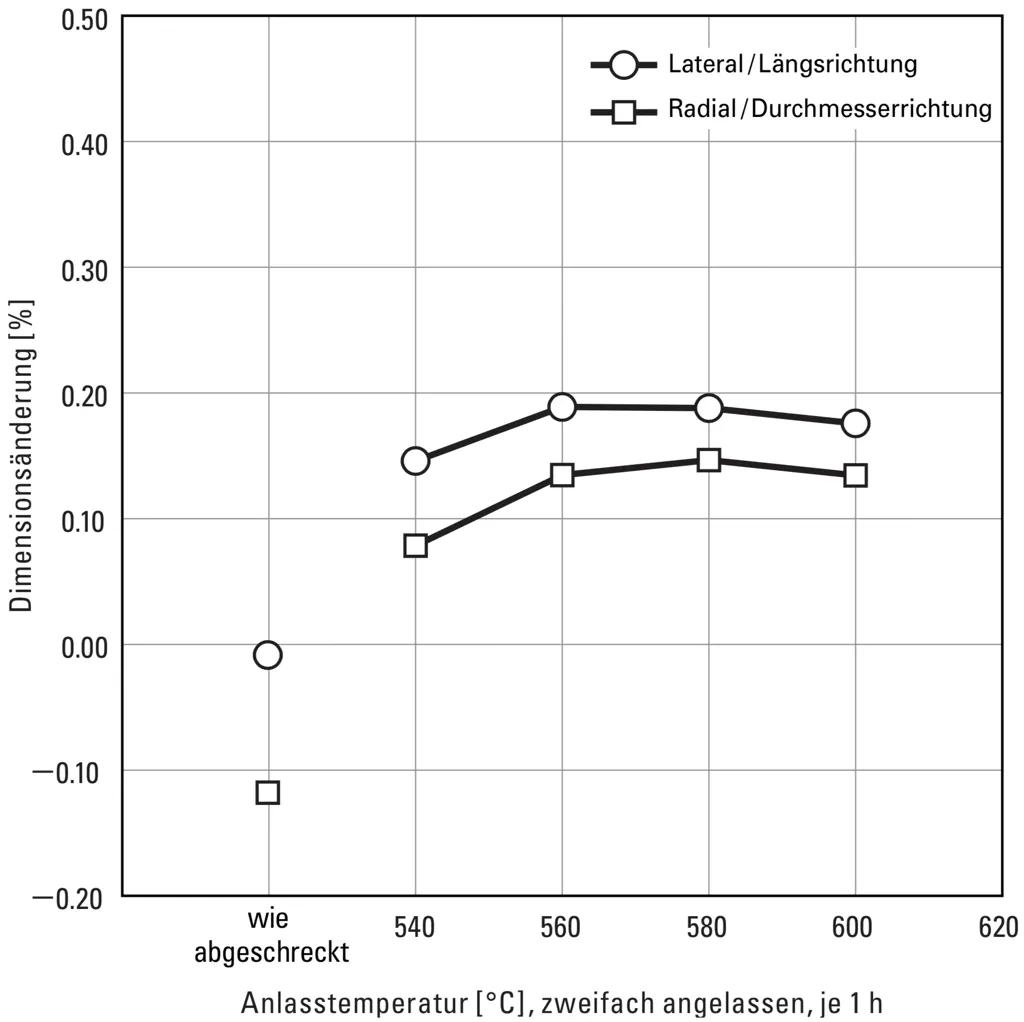
| Heat Treatment | |
|---|---|
| Hardening | |
| DRM3 | 1,140°C, hardened in salt bath |
Hardenability
Influence of Cooling Rate on Bending Strength
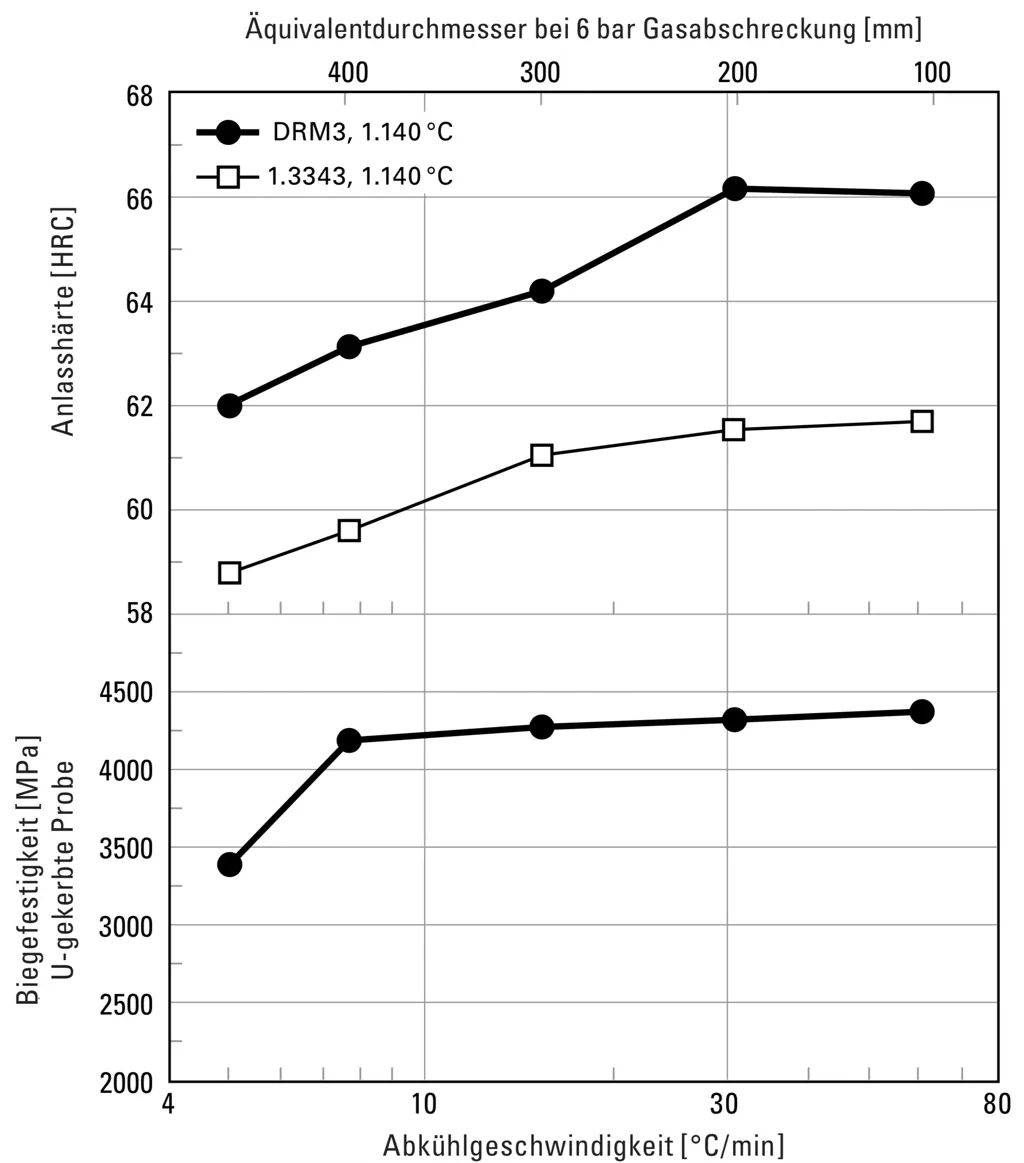
Continuous Cooling Transformation Diagram
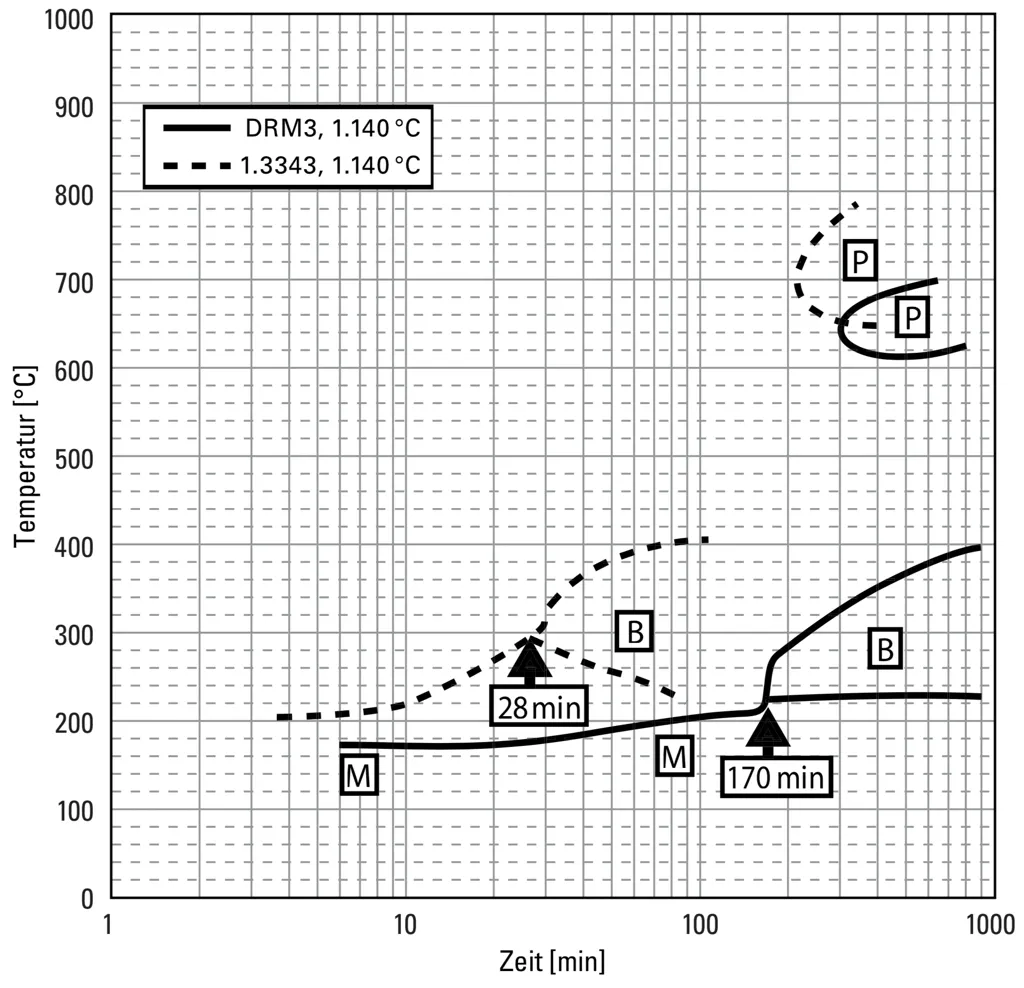
Hardening Process
Salt Bath

Vacuum
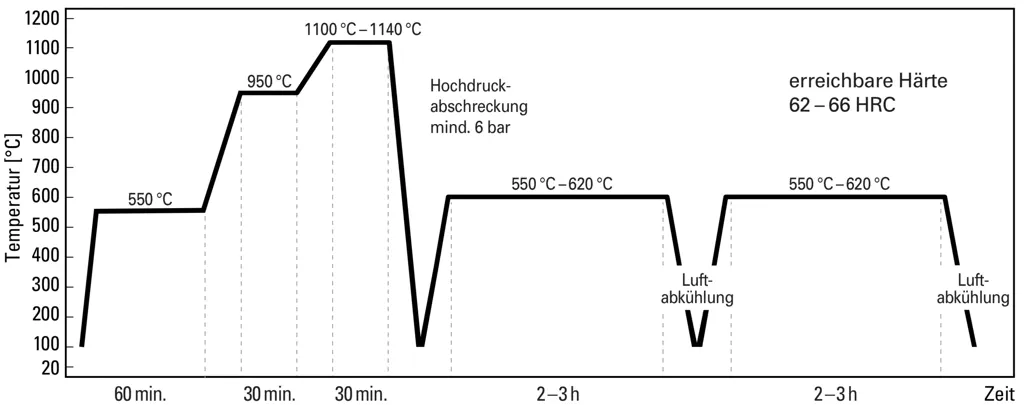
Umwandlungstemperaturen:
AC1 = 830°C, Ms = 175°C
The Hardening Temperature of DRM3 is at 1,100 – 1,140°C
| Salt Bath | Vacuum | |
|---|---|---|
| Thickness [mm] | Holding Times [min] | Holding Times [min] |
| to 12 | 8 - 10 | 20 - 30 pro 25 mm Thickness |
| to 25 | 10 - 15 | |
| to 36 | 15 - 20 | |
| to 50 | 20 - 25 | |
| to 100 | 30 - 40 | 10 - 20 pro 25 mm Thickness |
| over 100 | 30 - 40 |
Nitriding
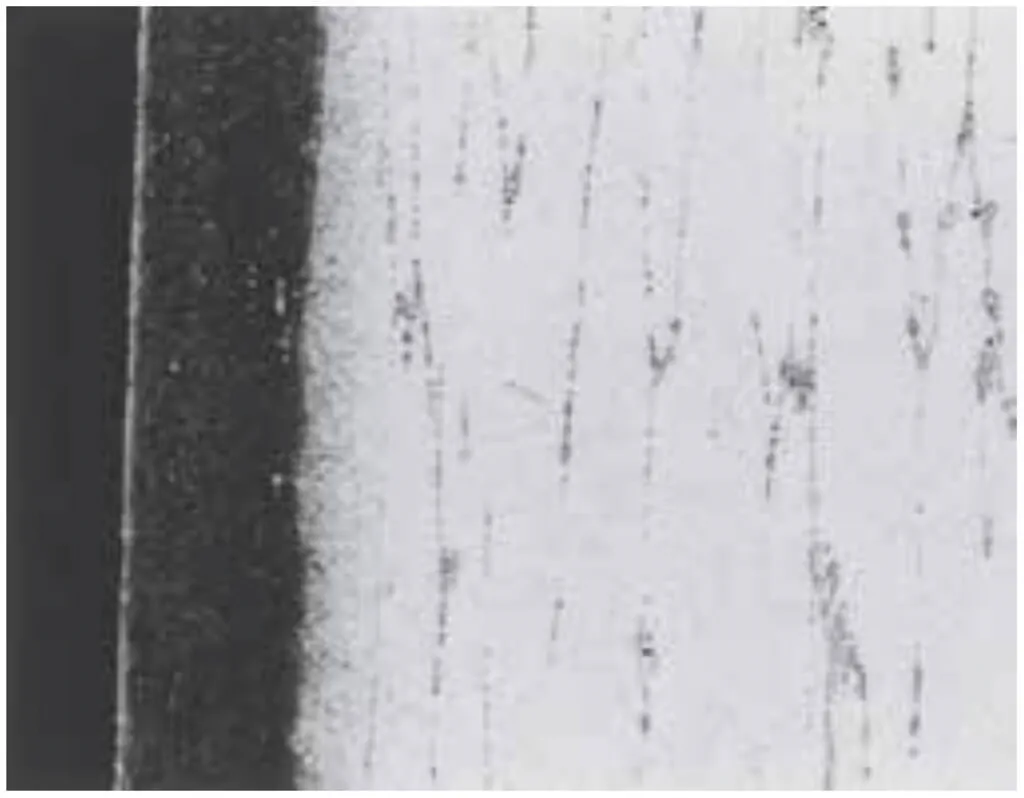
Example of the microstructure of a nitrided surface using the PS process by Daido Amistar.
Hardness Profile After Nitriding
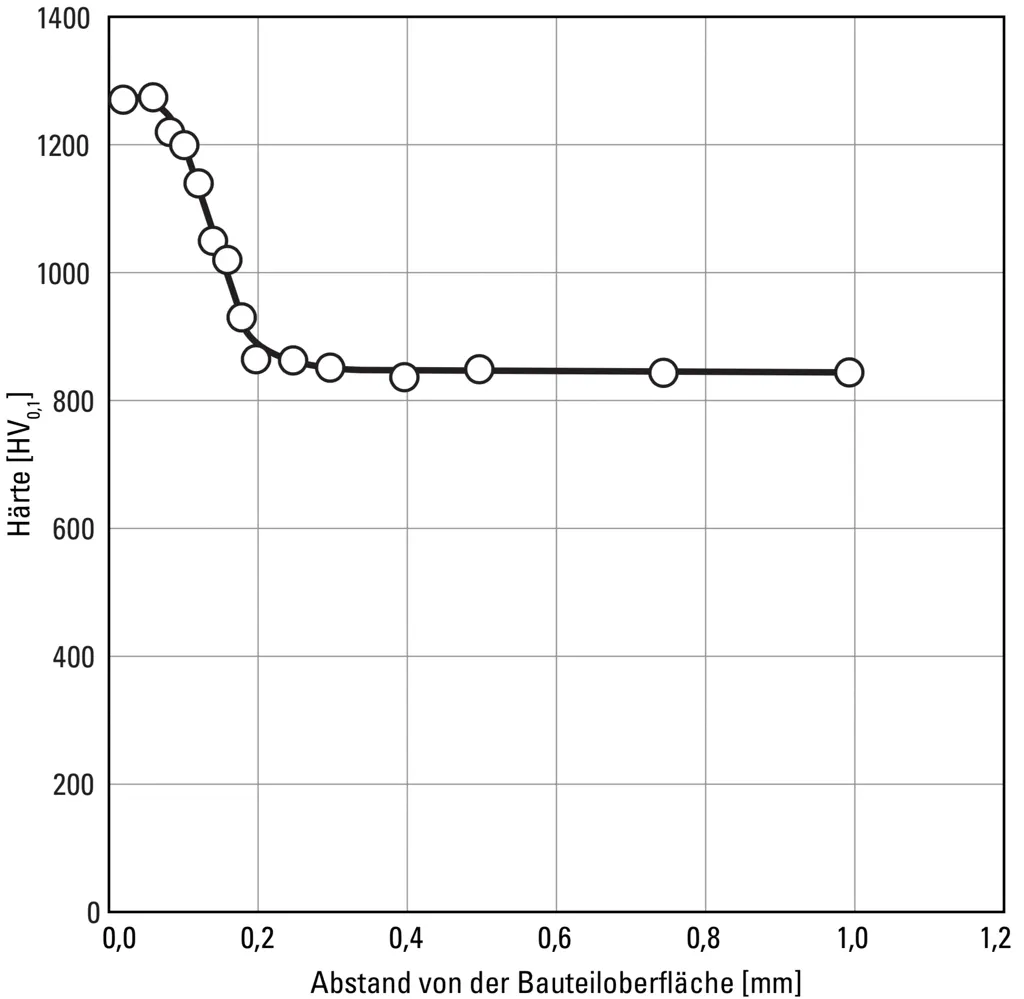
The surface hardness reaches 1,280 HV with NHD = 0.2 mm.
Representative technical values are always given based on our investigations. If not stated otherwise, they do not constitute guarantees. Please seek individual advice if needed.
Attention please!
Some features of our webshop are not supported by your current browser version.
We recommend updating your browser or using a different browser.

